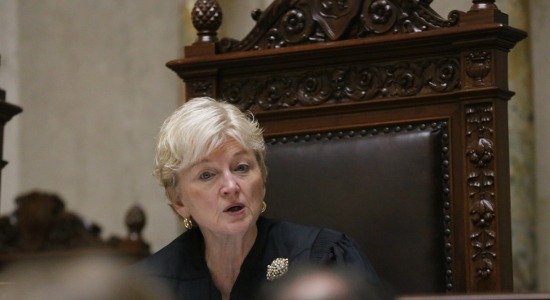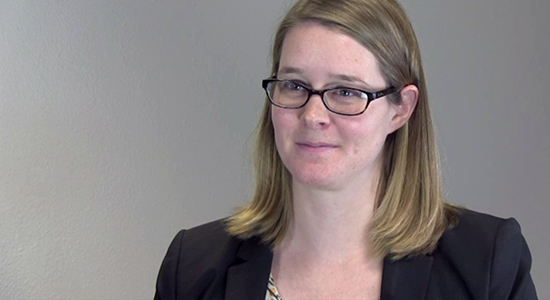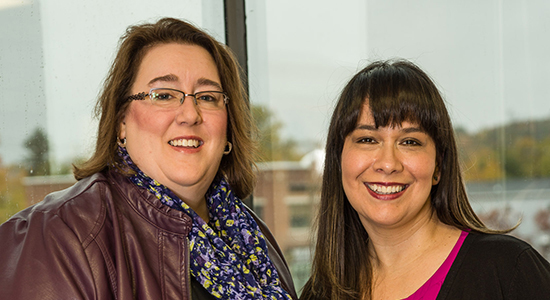Judicial Salaries and Hourly Rate Paid to Private-bar Lawyers for SPD Cases, Both Inadequate

In “State of the Judiciary: Chief Justice Pushing for Judicial Pay Increases” (WisBar News, Nov. 16, 2016), Joe Forward, State Bar legal writer, reported that Wisconsin Supreme Court Chief Justice Patience Roggensack made judicial salaries a focal point of her State of the Judiciary address, saying increased salaries will help the state “attract and retain highly skilled and knowledgeable judges.”
In her address at the Annual Meeting of the Wisconsin Judicial Conference, Roggensack said Wisconsin lost 24 judges last year and 19 the year before. “We know that some judges retire because they have personal financial pressures that they cannot meet on the salary they are paid by the State of Wisconsin.”
She went on to cite statistics comparing Wisconsin judges’ pay with the national average and with neighboring states, showing Wisconsin ranks 41st of 50 states for circuit court pay and 33rd of 40 for appeals court pay. Roggensack asked for the judiciary’s help in persuading Gov. Walker to support judicial salary parity.
A reader had another perspective.
Reader: Chief Justice Roggensack makes several valid points. However, it is an utter travesty for the Chief Justice to be urging an increase in judicial salaries when the legislature refuses to increase the hourly rate paid to private-bar attorneys willing to accept cases appointed by the State Public Defender. The $40-per-hour rate, the last adjustment to which was a decrease from $50 per hour many years ago, is an injustice that compromises due process for indigent defendants.
The State Bar of Wisconsin ought to be thoroughly embarrassed by this private-bar rate. Are we admitting too many people to the practice of law in our state such that the laws of supply and demand allow a rate that barely covers overhead (if at all) to prevail? I do not blame the legislature as much as I blame those who should be protecting the profession.
I accept some SPD-appointed cases because all defendants deserve a zealous defense from attorneys with the appropriate level of experience commensurate with the severity of the charges, and because the work is interesting and meaningful. This rate needs to be fixed immediately, and certainly before the judges push to get a raise or even think to raise the issue of mandatory pro bono hours.
For excellent articles on the issue of fair pay for public defenders, see “Editorial: Public Defenders Deserve Fair Play” (Wisconsin Lawyer, Oct. 2008). Also see “Wisconsin’s Low Attorney Compensation Rates Create Conflicts for the Indigent Accused” (Sixth Amendment Center, April 30, 2015).
Stephen W. Sawyer
Law Offices of Stephen W. Sawyer, Stevens Point
We Want to Hear from You!
Connect With Us Online. Post comments to articles on WisBar.org, and connect with us on Facebook, LinkedIn, and Twitter.
Submit Letters to the Editor. Wisconsin Lawyer provides a forum for members to express ideas, concerns, and opinions on law-related subjects. Find our writing guidelines here. Email us at wislawyer@wisbar.org or send your message to: Wisconsin Lawyer “Letters,” P.O. Box 7158, Madison, WI 53707-7158.
High LSAT Score Helped Reader Gain Admission to Law School

“The Demise of the LSAT” (Briefly column, Wisconsin Lawyer, Nov. 2016) reported that in February, the University of Arizona School of Law became the first law school to let applicants submit Graduate Record Examination (GRE) scores rather than Law School Admissions Test (LSAT) scores. The school had conducted a study that found that GRE scores could reliably predict law school success.
As a result, the ABA Section of Legal Education and Admissions to the Bar is reviewing the study results and considering whether to accept the GRE as a valid test for admission.
That struck a chord with a reader.
Reader: It was disappointing to read the article in the November 2016 Wisconsin Lawyer about the LSAT “destroying socioeconomic diversity.”
I personally was able to attend and graduate from the U.W. Law School only because of the LSAT. I came from a poor rural background and was able to graduate from U.W.-Madison with a Bachelor of Science degree in chemical engineering.
Because I worked as many as three part-time jobs at a time while attending full-time engineering classes and because, at the time, the chemical engineering program was one of the toughest in the country, I graduated with a very low GPA.
After two years in the field as a chemical engineer, I was admitted to law school because of a very high LSAT. My career over the last 43 years, besides taking on almost every case that came through the door, including numerous pro bono matters, has involved, and still does involve, countless hours working with numerous civic organizations at all levels from committee management to president to bank board to private foundation. It’s highly unlikely I would have been able to do nearly as much for my community if I had not had the opportunity to study the law and desire to apply my experience as I did and still do at age 71.
So, please, go cautiously when you talk about changing that which works.
Roger L. Deffner
Deffner Law Firm S.C., Wausau
Deadman’s Statute Dead in Wisconsin

In “After 158 Years, Farewell to the Deadman’s Statute in Wisconsin” (InsideTrack, Nov. 2, 2016), legal writer Joe Forward said the Wisconsin Supreme Court has repealed the statute under a package of evidence rule changes sought by the Judicial Council. This longstanding witness competency rule barred “interested witnesses” from testifying about communications or transactions with a person who has since died or is no longer competent to testify about it. The rationale for the deadman’s statute, codified in 1858, was to protect a decedent’s estate from fraudulent claims by living witnesses with an interest in the estate.
The Wisconsin Judicial Council, which studies pleading, practice, and procedure rules and makes recommendations to the court, petitioned for repeal as a part of a larger package of procedural rule changes that Forward also discussed in the article. Readers responded.
Reader: This was a very well-written, interesting article. Thank you for all of the great information. It will be interesting to see how this changes inheritance litigation. If you could provide a link to the order once it is issued, I would very much appreciate it. (Another reader also asked for the link.)
Trevor Lippman
O’Neil, Cannon, Hollman, DeJong & Laing S.C., Milwaukee
Author Response: The court has not issued an order yet. The court agreed to repeal the deadman’s statute on Oct. 24 at its open administrative conference. The repeal will be effective July 1, 2017. The court will issue a final order before then.
Election Law for Lawyers: What You Need to Vote

What do I need to bring to the polling station to vote on Election Day? How do I register to vote? Can I get involved?
Emily Lonergan of Gimbel, Reilly, Guerin & Brown LLP shared answers to commonly asked election law questions in a presentation, “Election Law for Lawyers,” at the 2016 Wisconsin Solo & Small Firm Conference, Oct. 20-22, 2016. A videoclip of her presentation was posted to InsideTrack (Nov. 2, 2016) and Facebook (Nov. 3, 2016). From Nov. 3-8, this video reached more than 10,500 people’s newsfeeds, and readers responded.
Reader: It’s time to see some legislative action in the area of absentee ballot rules. They require that the voter mail in the physical “wet ink” document, also signed by a USC witness. Internationally shipping those documents in a timely manner can be quite costly. And don’t rely on your local embassy. Their diplomatic pouches do not have tracking numbers and can be lost. Other states accept digital submissions from registered voters and it’s time for our state to get up to speed.
Christopher D. Russell
La Crosse
Reader: I actually used info in this video (that I saw the other day) to report problems at my polling place. I used the 866 number today because of early concerns at my polling place. A later voter friend in my district said the issue had been remedied an hour later. Good work! Thank you, State Bar of Wisconsin.
Jamie Kratz-Gullickson
Beaver Dam
Innovator Sam Owens: It Is ‘Equalyzr.com’ Not …

In celebrating the “2016 Wisconsin Legal Innovators” (Wisconsin Lawyer, Nov. 2016), among those we profiled was Sam Owens. Sam created his own interactive web application, Equalyzr.com, to help people with viable discrimination claims file a timely complaint with the appropriate agency. Because delays can torpedo a claim, he needed a system to efficiently obtain the data needed to quickly turn around and file a complaint on behalf of clients. So he built it.
Unfortunately, we misspelled the name of the web application (since corrected in the article online). To link to the right app, use Equalyzr.com.
We regret the error, and thank Sam again for alerting us.
Editors
Wisconsin Lawyer magazine
Judicare Celebrates 50 Years’ Serving Low-income Clients

More than 50 years ago, the State Bar of Wisconsin asked the Office of Economic Opportunity (OEO) in Washington, D.C., to fund a legal assistance program. Then-State Bar Executive Director Philip Habermann called it “Judicare.”
The concept was simple: pay private lawyers to provide free legal advice to low-income individuals. Now celebrating its 50th anniversary, the organization is different, but its mission is still the same, writes Joe Forward in “Judicare at 50: Wausau Legal Center a Bedrock in 33 Northern Counties” (InsideTrack, Oct. 19, 2016).
In the article, Judicare Executive Director Kimberly Haas (pictured above, left) and staff attorney Sunshine Lemieux (right) explain that since its founding, Judicare has expanded to 33 northern counties and serves Wisconsin’s 11 federally recognized Indian tribes and low-income residents. The organization helps approximately 1,500 people per year, through staff attorneys, contracting attorneys, and volunteers.
Readers offered kudos.
Reader: Congratulations on the superb outreach, especially in the smaller counties. Best regards for your long and successful future!
Anne MacArthur
Anne MacArthur Law LLC, Madison
Reader: Congratulations to a ground-breaking organization, and continued success in your next 50 years!
Kathryn M. Bullon
Deerhaven Consulting Services, Sombra, Canada
